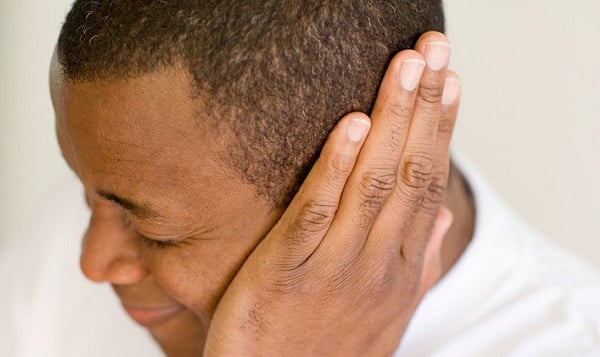A new research by the University of Manchester and Manchester Biomedical Research Centre has identified a link between hearing loss and COVID-19.
According to the University of Manchester, the scientists who assessed data from 56 previous research studies discovered that 7.6 percent of people infected with COVID-19 experience hearing loss.
The researchers also found that vertigo (a feeling of dizziness and loss of balance) was prevalent in 7.2 percent of COVID-19 cases while 14.8 percent suffered tinnitus — the term for a ringing or buzzing noise in your ears.
The experts also believed that a wide variety of COVID-19 patients have been affected by the aforementioned symptoms but wondered why the pandemic is responsible for it.
Speaking with Sky News on the latest findings, Kevin Munro, director of the Manchester Centre for Audiology and Deafness, said there may be huge clinical implications if the symptoms continue to surge amongst COVID-19 patients.
“If it is correct that something between 7% and 15% is having these symptoms, that’s something we should take very seriously,” Munro said.
“There are big implications for clinical services if this means there could be a big increase in the number of people coming forward.
“There are some people who say the symptoms are ongoing. There are others who say it seems to have settled down a bit so there are lots of unknowns right now.”
The news outlet also reported that Paul Johnson, a 53-year-old man, who was admitted to hospital four months ago with COVID-19, complained about having tinnitus ever since.
He said he first noticed the noise two weeks before he was admitted to the hospital, adding that “it is a persistent, very high-pitched whistle that you hear.”
“Something that I could liken it to would be if you have water running through a pipe, going through a valve, but you turn it just slightly so you get a sort of ‘shh’ – a whistle sound, but it’s a much higher frequency than that,” he said.
“You do notice it very much at night, when there’s no noise surrounding you, there’s no noise in the background, the TV’s off, and you’ve got this constant whistling noise.
“I think at the moment I would regard it as manageable. I can’t say it keeps me awake but I certainly hope it doesn’t get any louder or any more noticeable.”
The researchers said they have commenced further analysis that will give a more accurate assessment of both the severity and number of coronavirus-related hearing disorders.
Ibrahim Almufarrij, a PhD student who was part of the research, said: “Though the evidence is of varying quality, more and more studies are being carried out so the evidence base is growing. What we really need are studies that compare COVID-19 cases with controls, such as patients admitted to hospital with other health conditions.
“Though caution needs to be taken, we hope this study will add to the weight of scientific evidence that there is a strong association between Covid-19 and hearing problems.”
In April 2020, the United States’ Centers for Disease Control and Prevention (CDC) added six new symptoms to its list of possible signs of COVID-19.
In February 2021, experts at the Imperial College in London, UK also linked four new symptoms to COVID-19 infection.
Copyright 2025 TheCable. All rights reserved. This material, and other digital content on this website, may not be reproduced, published, broadcast, rewritten or redistributed in whole or in part without prior express written permission from TheCable.
Follow us on twitter @Thecablestyle

